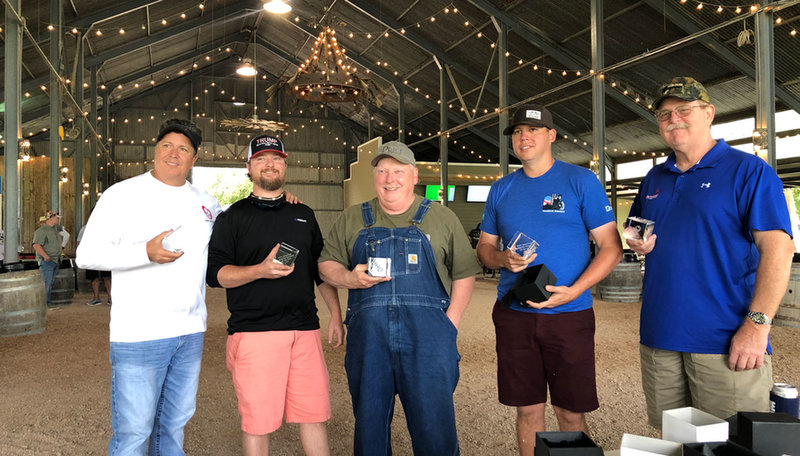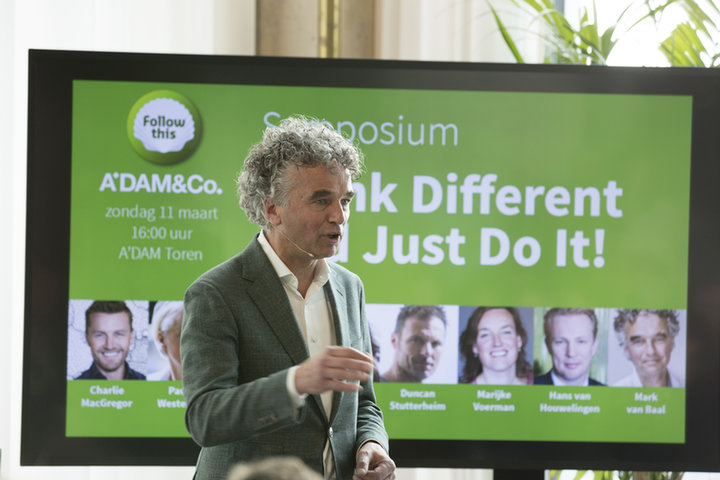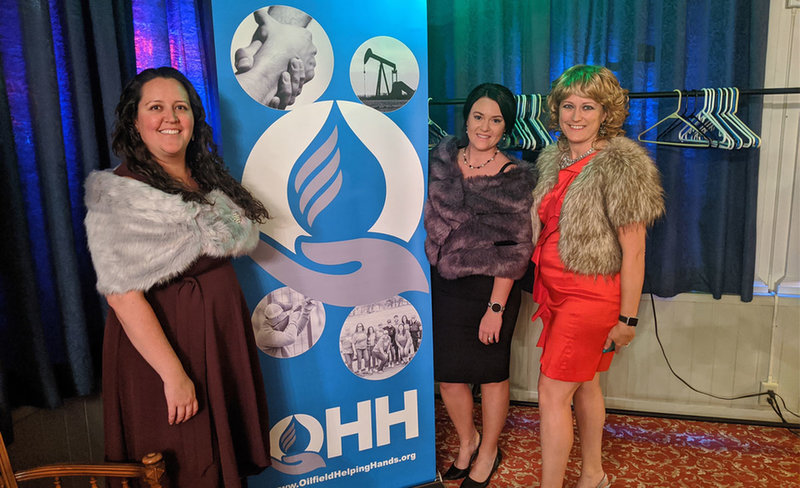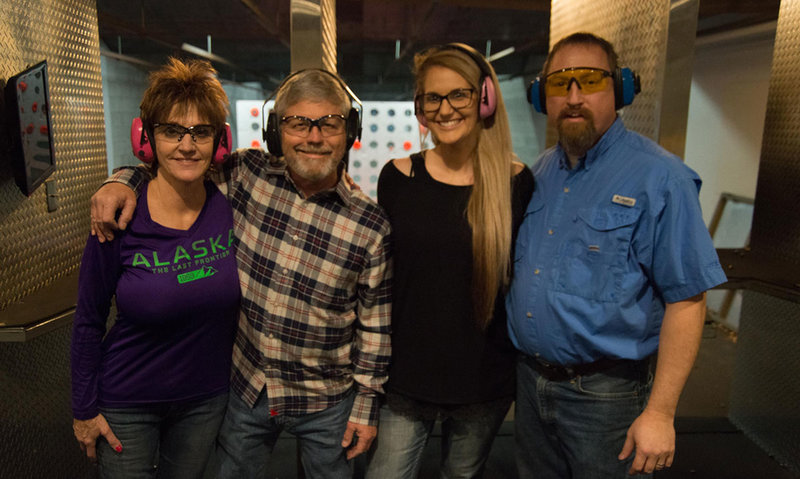WORKFORCE
Oilfield Helping Hands
– how charity starts
at home for the oil sector
Despite the headlines of a sector obsessed with self-interest, the oil industry has the capacity for compassion. Andrew Tunnicliffe talks with Oilfield Helping Hands’ national president, Bill Markus, about the work it does to support industry colleagues.
Images: Oilfield Helping Hands
"There are not enough words to express my gratitude for what Oilfield Helping Hands has done..." It’s a statement which could have been made by countless oil workers, but this one belongs to the Mendez family. Father-of-two, Joe, was killed on his way home from work in a road traffic accident, leaving behind his wife and children.
His family received support from Oilfield Helping Hands (OHH), a charity set up in 2003 to help workers in the upstream market who have found themselves in financial difficulty through no fault of their own. Like the Mendez family, this can include the loss of a loved one, illness or injury, unemployment through site closure or redundancy, or even natural disasters which mean oilfield operations cease – indefinitely or for a period of time. In the event of a natural disaster, the charity will also help communities whether the impact has resulted in the closure of an oilfield or not. This can include funds to support the rebuilding of homes or community facilities.
OHH’s roots date back to efforts by a small group of oilfield workers to help one co-worker in difficulty. They arranged an event in his honour to great success. However, as word spread and demand grew, the founders knew there was more need, and more they could do. It was then that founding members embarked on the charity effort, organising fundraising events from which money would go into a pot to help support those in the industry at their time of need.
Taking care of our own
With the perception being the oil and gas industry has gone through a period of cost-cutting – which to some degree is true – it is now enjoying a relatively healthy period. Today production is up year-on-year and employment continues to rise. Recent figures in the US Energy & Employment report revealed the sector employs 1.5 million directly, the highest it has been since 2014. Levels of pay are on the rise too as the industry contends with a skills shortage.
However, as anecdotal evidence suggests, workers and their families can still find themselves in a time of crisis. From its roots in Houston, Texas, OHH has spread to Midland and Odessa in the Permian Basin area, Oklahoma, and the Rocky Mountains near Denver. “Every time we moved out to these locations we found there were plenty of volunteers,” says the charity’s national president Bill Markus, ”there's more than enough people that want to stand up and help.”
It’s a fraternity of brothers, like the police and firefighters
The driving force behind OHH’s success is the generosity of the industry, both individually and at a corporate level. “We tend to really take care of our own and there's all levels of socioeconomic patronage. We get guys working on the rigs, probably high school graduates, all the way up to engineers and CEOs, that look at this industry as being more than just an industry. It’s a fraternity of brothers, like the police and firefighters.” Markus says.
The charity invites companies working in the sector to support their work through corporate membership packages ranging from $5,000 up to $30,000 a year. Corporations are also welcomed to sponsor individual events too, whether a member or not.


Image courtesy of Follow This
Dealing with insecurity in a volatile industry
Although the sector isn’t enduring its toughest period, times can still be hard for those working in it. One of the biggest challenges workers face, Markus believes, is insecurity. “If you're a parent and you have to wonder if you have a pay cheque next month because things are getting bleak, that’s not a good place to be.” He says even during the ‘short dips’ layoffs occur, perhaps just for a matter of weeks. It’s these events, however, that can present some of the most testing times for those affected.
For Markus, some of the most difficult stories to hear are those of workers hoping to be rehired once the dip eases. It’s here OHH has a real impact, supporting families during these difficult times. The charity’s selection committee has to make difficult decisions as to who they can help and to what extent. Often these decisions are taken in the knowledge they won’t fix all ills, but they can help solve at least some of them.
It is often the case that those in need won’t approach OHH themselves, their friends and colleagues do because they can see the difficulty they face. Markus says those concerned will come with stories of families having to reach out for charitable donations of food and clothes. In these cases OHH approaches them to offer support, asking for nothing in return except, if they’re willing, for them to share their experience with others in need.
We raised $12,000 per family in almost two weeks
As well as individuals, the charity supports communities during larger incidents too. 2017’s Hurricane Harvey was one such event, making landfall in Texas as a Category 4 storm. OHH initiated a ‘focused response’, providing funds to support federal and state efforts. In total, the charity distributed $350,000 to 217 families.
Other major incidents included a rig blow out in Oklahoma which killed four. Markus says that although the company conducting drilling operations was fully prepared to support families, it wasn’t in a position to do so immediately and likely wouldn’t be able to provide them with all the financial support they needed, so they asked OHH to step in. “At a moment's notice we were able to put together a sporting clay shoot in Oklahoma to support the families. We raised $12,000 per family in almost two weeks. So each family was able to cover funeral expenses.”

Spirit of generosity
Contrary to what many believe, the spirit of generosity is alive and well in the oil industry. That generosity has been the source of great support and comfort in times of need. From across the industry, from the very top to the very bottom of the organisations that inhabit it, this altruism has touched workers and their families, resulting in lasting friendships and enduring respect.
It’s best reflected in a story Markus shares of a former colleague and long-time OHH volunteer who hadn’t made it to the top of the industry – at least not by title. “At his funeral I counted no less than four CEOs of Fortune 100 companies. This guy was an engineer, probably never made more than $100,000 a year. But because he touched those CEOs in some way, they were at his funeral. I thought to myself, where else in the world could somebody of that level reach people at the other end of the spectrum?”
The practice of charity will bind us, will bind all men in one great brotherhood
In the 17 years since OHH was launched, it has given $5m to those in need. With 2019 seeing the biggest ever amount raised, Markus says 2020 will likely set the record for the largest amount ever handed out in one year. “I've been in this industry for 25 years and I know that when these guys have a little extra money, they have no problem donating it to the guy standing next to them, because they see this as a brotherhood, or sisterhood,” he says.
Conrad Hilton, founder of the Hilton chain of hotels, once said: “The practice of charity will bind us, will bind all men in one great brotherhood.” For OHH and those it has helped, those words could not be more true.
